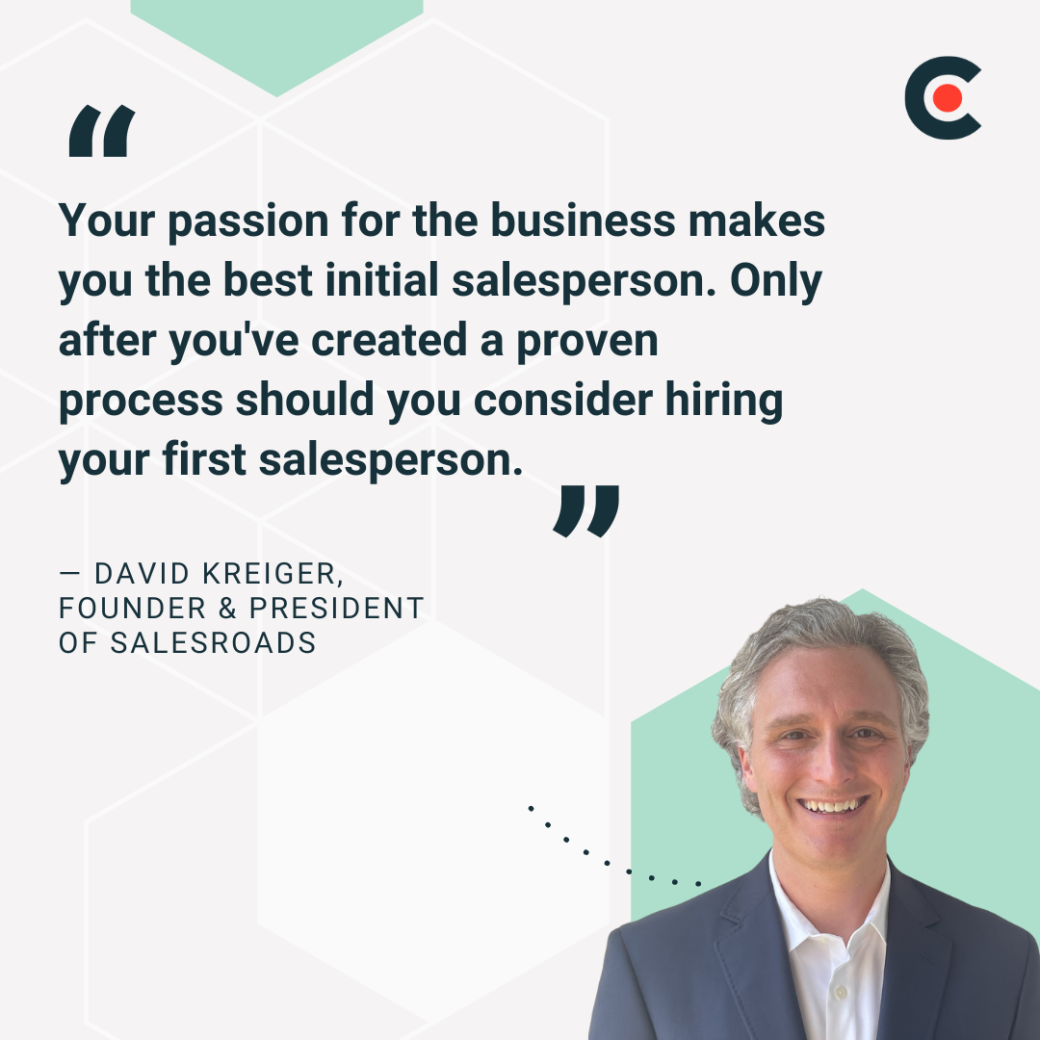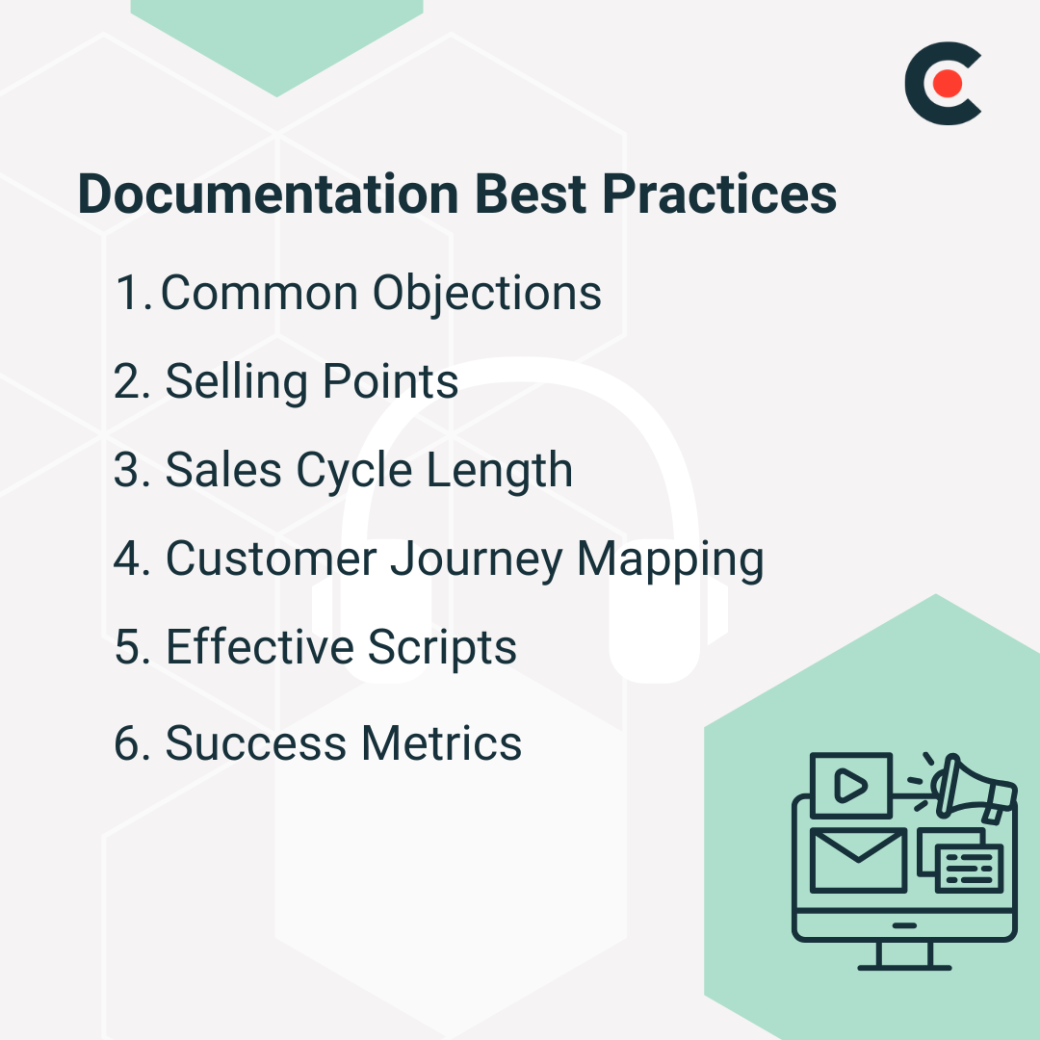

Updated March 14, 2025
Building a sales team starts with the founder taking the initial step by acting as the first salesperson. David Kreiger, founder & president of SalesRoads, gives his best advice for companies looking to build their sales team from scratch.
Salesforce's State of the AI Connected Customer report shows that 84% of customers expect sales reps to act as trusted advisors. But what if your business doesn't have a sales team yet? Building a sales team from scratch is the only way to meet this consumer expectation.
There's no denying that it's a daunting task. However, it's a necessary one. A sales team helps drive revenue and build customer relationships for your business. Without one, you may struggle to grow and compete in the market.
A common struggle in building a sales team is not knowing how to structure or manage it effectively.
David Kreiger, founder and president of SalesRoads, discusses helpful tips for solving this problem and building a strong sales team from the ground up.
Find the right sales outsourcing partner for your next business adventure.
When you're in the early process of building a sales team, there's not much to begin with. You haven't recruited any sales professionals yet and don't have a defined sales process. However, the show must go on if your brand has entered the market.
Who will lead the sales charge then? The answer is the founder.
“For building your first sales team, I recommend starting with founder-led sales. Yes, you'll be wearing multiple hats, but use this time to develop and document your process.” David Kreiger says. “Your passion for the business makes you the best initial salesperson. Only after you've created a proven process should you consider hiring your first salesperson.”

Since the founder is the brain behind the product, they deeply understand its features and benefits. They are also passionate about the brand and its solutions, making them the ideal person to start selling.
The founder has also been involved in the early stages of the business. So they know which pain points their product or service is targeting. They may have built a strong network of industry connections during the initial prototyping and validation stages. The founder can use these relationships to drive early sales for the business.
Refine your sales processes before hiring new hires. The founder should be the first to define these processes since they know the most about the product and target market.
Typically, a sales process involves:
Create a detailed and documented process for each step so future sales teams can maintain a consistent approach. When documenting the processes within these steps, some vital information to record is:

The metrics you want to measure will depend on your business model and goals. Being the founder, you're in the best position to determine what metrics are valuable.
Taking the same point forward, metrics help you see how you're performing regarding sales. They're your personal benchmarks that determine success or failure. While you can have some industry-specific metrics, the following are standard across businesses.
There are general benchmarks for all these metrics. However, you can set your own targets depending on business objectives and current growth rate.
Understandably, you want to grow your sales team as quickly as possible. However, that's not always wise because you may compromise on more pressing things like customer satisfaction and smart resource allocation.
When discussing building a sales team, Kreiger began by emphasizing, “Don't grow too fast. Rapid growth can compromise quality, and excellence is your best sales tool. This is especially true for bootstrapped agencies.”
Regarding resources, if you put too much toward sales team expansion, you may be left with too little to invest in other business areas. Hiring and training new salespeople also takes time and can lead to a temporary decline in performance.
You need to set your priorities right in this regard. Focus on customer satisfaction and product quality first. Then, scale your sales team gradually as resources and time allow.
Simply building a sales team and growing it isn't enough. You have to make this growth sustainable. To do that, the founder and early stakeholders must work together while always keeping metrics and benchmarking in mind.
Make sure you have documented all sales processes well. This way, the process doesn't skip a beat when new salespeople join. They can hit the ground running since they know which metrics to use to measure their performance.

David Kreiger is the Founder and President of SalesRoads, an award-winning B2B sales outsourcing firm providing appointment setting and lead generation services. With over 20 years of experience, he has led the development of 500+ SDR teams, generating 100,000+ sales opportunities. His company is a 2X INC 5000 honoree, and he contributes to Entrepreneur Magazine. David's success stems from a methodology focused on attitude-driven hiring, precision prospecting, continuous training, and maintaining strong human connections in sales. He has helped companies from startups to Fortune 500s exceed their sales goals through these proven principles.


